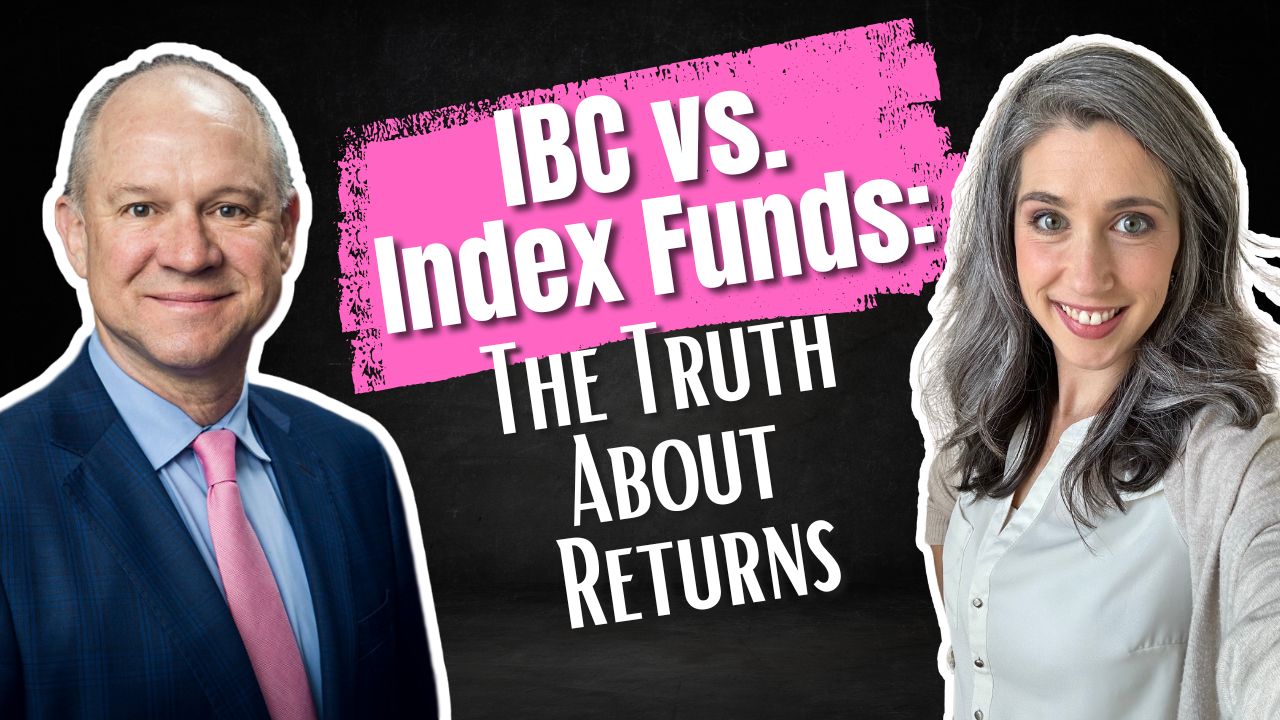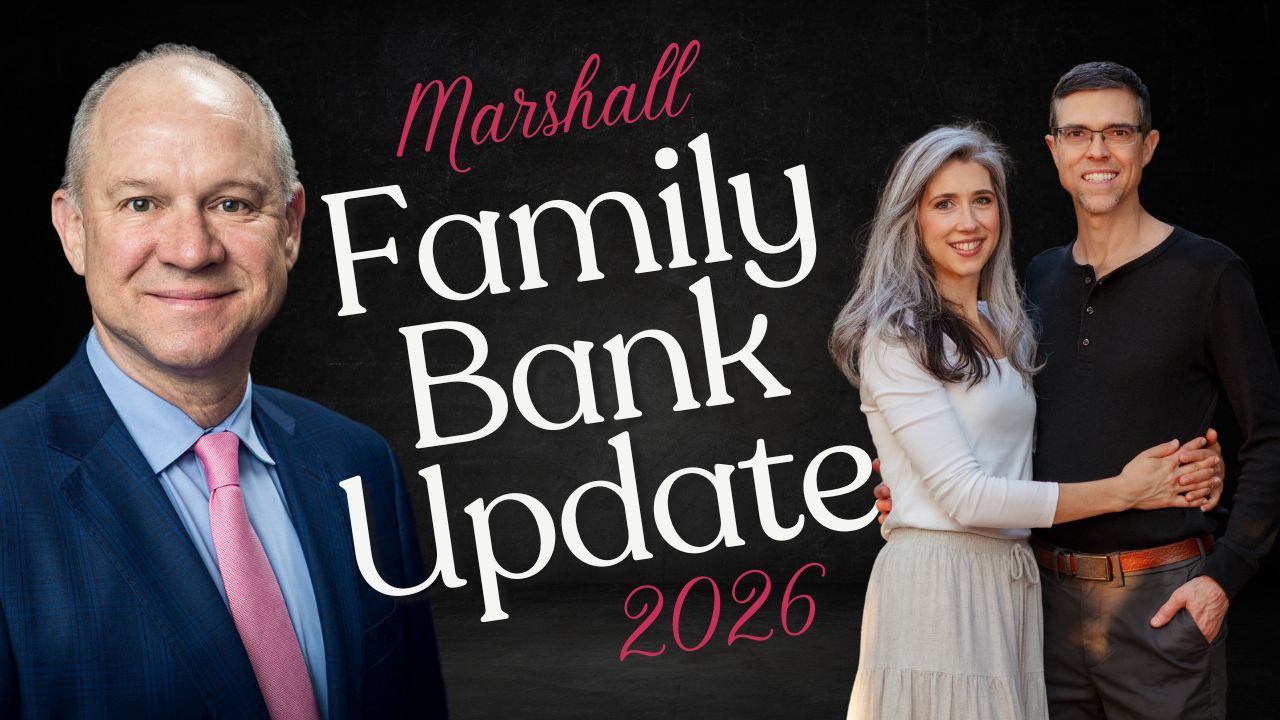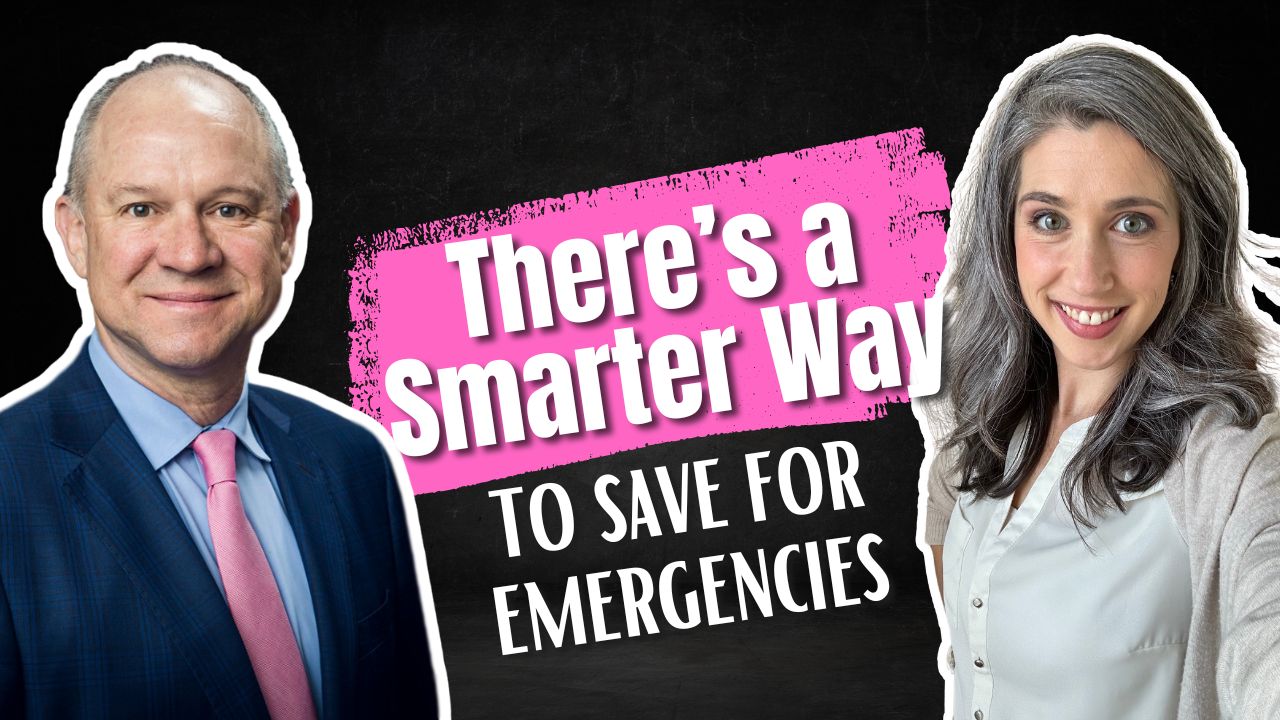
Infinite Banking vs Index Funds: Why You’re Asking the Wrong Question
The Gas Station Story That Reveals a Common Money Mistake
Let me paint a picture for you.
You’re driving down the highway and see gas at $3.00 a gallon. Three miles later, you spot it for $2.97. You think, “Yes! A deal!” So you turn around, drive the extra six miles, and save… 30 cents.
Except you used 40 cents of gas to get there.
This is the kind of logic many people use when comparing Infinite Banking vs Index Funds. It’s a hyper-focus on rate of return, while missing the bigger picture of financial control, access, and long-term strategy.
So let’s talk about it.
Podcast: Play in new window | Download (53.8MB)
Subscribe: Apple Podcasts | Spotify | Android | Pandora | Youtube Music | RSS | More
Table of Contents
Rate of Return Isn’t the Whole Story
There’s a conversation happening everywhere in the financial world: Should I use Infinite Banking or just invest in an index fund?
Maybe you’ve asked this question yourself. You’ve heard someone say, “Wouldn’t I make more money if I just put it in an S&P 500 index fund?”
This comparison sounds reasonable — until you realize it’s like comparing a hammer to a screwdriver and asking, “Which one builds a better house?”
The truth? You’re asking the wrong question.
In this article, you’ll learn:
- Why comparing Infinite Banking to index funds is fundamentally flawed
- The purpose and role of each strategy
- How to think like a wealth creator, not just a rate chaser
- Why long-term control beats short-term returns
Let’s flip the script and empower you to take control of your financial life—with clarity, confidence, and a legacy mindset.
Infinite Banking vs Index Funds: What Are We Actually Comparing?
Here’s where we start: Infinite Banking is not an investment.
It’s a cash flow system, a capital control strategy, a way to reclaim the banking function in your life. It uses a specially designed, dividend-paying whole life insurance policy as the tool—but Infinite Banking is the process.
Index funds, on the other hand, are investments. They’re baskets of stocks that mirror the market—the S&P 500, the Russell 2000, etc. The goal of an index fund is growth through market performance.
So when someone says, “But the market earns more than whole life insurance,” they’re missing the point. We’re not solving the same problem.
Infinite Banking solves for control of capital. Index funds solve for growth.
Why Rate of Return Isn’t the Only Factor
We get it. Everyone wants to know their ROI. But when that becomes your only filter, you lose sight of what really matters.
Consider this: When you access money from an index fund, you sell shares. You interrupt compounding. You lose growth potential.
With Infinite Banking, you borrow against your cash value—without interrupting growth. That means your money continues to earn even while you’re using it.
“You’re always paying interest. Either to someone else, or by giving up what you could have earned on your own capital.” — Bruce Wehner
When you control the banking function, you stop giving away the opportunity to earn. And that’s where legacy wealth starts.
Understanding the Purpose of Your Dollars
All money has a job. We teach our clients to classify money into three roles:
- Safety
- Liquidity
- Growth
Most people try to make every dollar do all three. That never works. Instead, we need to clarify: What is the purpose of these dollars?
- If it’s for safe storage, liquidity, and access: Infinite Banking.
- If it’s for long-term market-based growth: Index funds.
Think of your personal economy as a water system. There’s a “risk tank” and a “safe tank.” Investments like index funds go into the risk tank. Infinite Banking fills the safe tank.
You need both—but you need to know what each is really for.
Infinite Banking Is About Ownership and Leverage
What do banks do? They:
- Collect deposits
- Control the capital
- Lend it out
- Earn interest
Infinite Banking lets you do the same thing.
When you use a mutual whole life insurance policy, you become a part owner of the insurance company. You earn dividends. You have contractual guarantees. And you can borrow against your policy without applying for a loan, without credit checks, and on your terms.
That’s financial leverage. And it’s a game-changer.
“You’re either renting your banking function from someone else, or you own it. Infinite Banking puts you in the ownership seat.”
Interrupting Compounding Is the Real Cost
People say, “I don’t want to pay interest to borrow against my policy.”
But here’s the flip side: If you take that money and invest it directly into an index fund, and you need to pull it out, you’re interrupting the compounding. That’s the cost most people never calculate.
- Infinite Banking = uninterrupted growth
- Index funds = interrupted growth whenever you withdraw
Which would you rather have over the next 40 years?
Control vs Performance: What Matters Most?
It’s time to stop looking at investments as the only way to build wealth.
Control is more important than performance.
If you can access your capital, use it for strategic opportunities, and know it’s growing even while you use it—that puts you in a position of power.
This is about legacy. Stewardship. Being the banker in your own life.
Infinite Banking vs Index Funds Is the Wrong Comparison
If you’ve been wondering whether Infinite Banking or index funds are “better,” the answer is: You’re asking the wrong question.
They serve different purposes.
- Index funds are for growth (with risk).
- Infinite Banking is for control (with guarantees).
One is not better than the other—but using the wrong tool for the job is a guaranteed way to lose time, money, and peace of mind.
Infinite Banking is not a replacement for investing. It’s the foundation that lets you invest from a place of strength and control.
Listen to the Full Podcast Episode
Want to hear the full conversation?
Bruce and I go deep on this topic in our podcast episode: “Infinite Banking vs Index Funds”. We cover:
- Why comparing rate of return is a distraction
- The unseen cost of interrupting compounding
- How Infinite Banking creates financial leverage
- Why legacy-minded wealth creators think differently
Podcast: Play in new window | Download (53.8MB)
Subscribe: Apple Podcasts | Spotify | Android | Pandora | Youtube Music | RSS | More
Book A Strategy Call
Are you ready to take control of your finances and legacy? We offer two powerful ways to help you create lasting impact:
- Financial Strategy Call – Discover how Privatized Banking, alternative investments, tax-mitigation, and cash flow strategies can accelerate your time and money freedom while improving your life today. Let us show you how to align your financial resources for maximum growth and efficiency. Book a Strategy Call with our team today.
- Legacy Strategy Call – If you want to uncover your family values, mission, and vision, and create a legacy that’s about more than just money, we can guide you through the process of financial stewardship and family leadership. Save time coordinating your family’s finances while building a legacy that lasts for generations. Book a Legacy Strategy Call to learn more about how we can help.
FAQ: Infinite Banking vs Index Funds
Q: Are index funds better than Infinite Banking?
A: It depends on your financial goals. Index funds aim for market-based growth with risk. Infinite Banking provides control, safety, and access to capital. They serve different purposes.
Q: Can I use both Infinite Banking and index funds?
A: Yes. Many of our clients use Infinite Banking as the foundation and then invest in other investments from their policy loans, giving them both growth and control.
Q: Does Infinite Banking have a good rate of return?
A: While the internal rate of return is lower than some investments, Infinite Banking is not designed to compete on return alone. Its value is in uninterrupted growth, liquidity, and leverage.
Q: Is Infinite Banking risky?
A: No. When structured properly with a mutual whole life insurance company, it offers contractual guarantees, stable growth, and full control over your capital.
Marshall Family Banking System Case Study: In-Force vs Original Illustration (Part 6)
The moment we realized “liquidity” isn’t a theory Thirteen years ago, Lucas and I thought we were being responsible by storing a lot of our capital in gold and silver. It felt safe. It felt timeless. It felt like the kind of move people make when they’re thinking long-term. And then we needed cash. Not…
Emergency Fund Alternatives: Liquidity That Protects Your Family—Without Sacrificing Growth
The Day the “Emergency Fund” Met Real Life Rachel here. Many tell us the same story: “I saved the emergency fund, but I’m worried I’m losing ground to inflation and missed opportunities.” Because for most people, the “emergency fund” is a lonely pile of cash—stuck in a corner doing next to nothing. It feels safe,…




